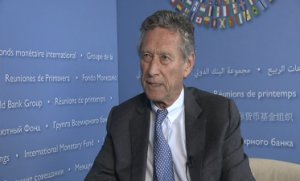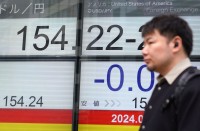
THE International Monetary Fund (IMF) expects the world economy to be moderate and uneven in 2015 and a slower growth in China.
The IMF projected that the global economy will expand 3.5 percent in 2015 accroding to a report made by IMF on Tuesday at its headquarters in Washington D.C..
At its news conference on Tuesday, IMF Economic Counselor Olivier Blanchard described this year’s growth as “moderate and uneven.”
“The words we have used is moderate and uneven. I think that’s a fair description. It’s the same growth rate as last year. It is good enough? Not really, because we still have a lot of unused resources, you have unemployment in many countries which will decrease. So it’s not bad, but it’s not great,” said Blanchard.
Emerging markets are projected to grow 4.3 percent this year and 4.7 percent in 2016, according to the report.
Growth in China, the world’s largest economy, is likely to slow from 7.4 percent in 2014 to 6.8 percent this year and 6.3 percent next year, the report says.
According to the report, after a rapid rise in credit and investment fed a real estate bubble, the Chinese government has sharply pulled back, leaving a sluggish housing market.
Blanchard said China is now facing mainly two challenges and he is confident in the government’s capability to control the negative economic effects.
“I don’t think it’s a natural part. I think China is facing two challenges. The first one is the one that you described, which is a slowdown in underlying growth, because it’s changing the composition of production between consumption and investment, between manufacturing and services. That has to happen, we see it happening, we see it very healthy. On top of this, you have what was a housing boom, and it’s no longer a housing boom. If it turns into a housing bust, then it slows down the economy too much. In the short run, that’s one of the issues. We are not very worried, a bit worried. But we are not very worried. we think that the government has the tools to limit the negative effect on growth,” said Blanchard. (Reuters)







